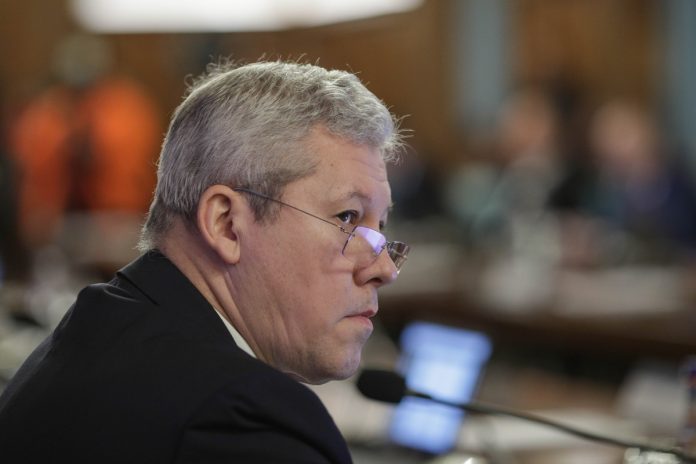InteriorMinister Catalin Predoiu on Thursday responded to accusations that he violates freedom of expression, saying that the Ministry of Home Affairs (MAI) „strictly” respects the right of all citizens to freely express their opinions.
„For several weeks, I have been accused by some opposition politicians of violating the ‘freedom to speak’ (Lidia Vadim Tudor) towards ‘several Romanian citizens’ (according to the same lawmaker), through the allegedly abusive intervention of the Romanian Police, which would „act as political police” in violation of democracy. These accusations vary in tone and language from case to case, from the natural tone of a criticism expressed in civilised terms to insults and, sometimes, even veiled threats. Occasionally, I am asked to resign, as MP Lidia Vadim Tudor did yesterday [Wednesday] in the plenary session of Parliament,” Predoiu wrote in a social media post.
The minister rejects „all these accusations” and says that „free speech” does not mean „freedom to offend.”
„Freedom of expression is a fundamental right guaranteed by the Romanian Constitution and by the international treaties to which our country is a party. Freedom of expression or ‘freedom to speak’ (cf. MP Lidia Vadim Tudor), enshrined in Article 30 of the Constitution, implies the public expression of thoughts, opinions, religious beliefs and spiritual creations of any kind. The existence of legal coordinates within which freedom of expression is exercised also implies a legal liability for exceeding these limits, in other words for the abuse in the exercise of such freedom. Therefore, Article 30 of the Constitution also establishes the forms of responsibility and the subjects of responsibility. Thus, in para. 8, two forms of liability are explicitly established, namely civil liability and criminal liability. Therefore, simply put, ‘freedom to speak’ does not mean freedom to offend. Or, more generally, the exercise of a right excludes the abuse of rights,” Predoiu wrote.
According to him, his ministry respects the right of all citizens to express their opinions.
„Millions of citizens do it daily, permanently and unhindered, regardless of the content of public communication, the means of communication or the place of communication. They do so also enjoy the public peace and safety secured by the state institutions, including the police officers employed by the Ministry of Home Affairs.”
Predoiu also says that the interventions of the police and prosecutors’ offices took place „exclusively” in situations where those rights were exercised „abusively” or in violation of the law.
„Anyone who violates the law can no longer claim an absolute right to legitimation, because, through his or her actions, he or she can affect other fundamental rights of other citizens. Therefore, in the situations in which the authorities acted, they did so not to censor opinions, but to ensure compliance with the legislation, including the rules on public peace and electoral propaganda,” according to Predoiu.
Moreover, in order to remove any suspicion related to the accusation of selective law enforcement, he adds that the Police and other structures act „only on the basis of the law and by virtue of the law.”
AGERPRES




